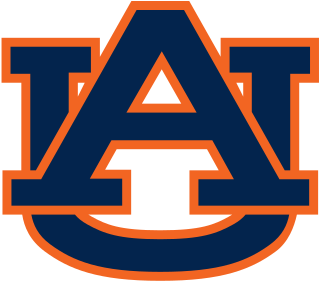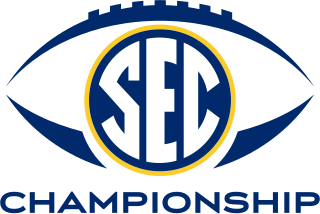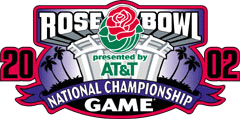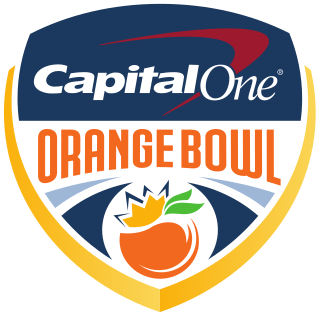
The Fiesta Bowl is an American college football bowl game played annually in the Phoenix metropolitan area. From its beginning in 1971 until 2006, the game was hosted at the Sun Devil Stadium in Tempe, Arizona. Since 2007, the game has been played at the State Farm Stadium in Glendale, Arizona. Since December 2016, it has been sponsored by PlayStation and officially known as the PlayStation Fiesta Bowl. Previous sponsors include BattleFrog, Vizio, Tostitos, IBM (1993–1995) and Sunkist (1986–1990).

The Sugar Bowl is an annual American college football bowl game played in New Orleans, Louisiana. Played annually since January 1, 1935, it is tied with the Orange Bowl and Sun Bowl as the second-oldest bowl games in the country, surpassed only by the Rose Bowl Game.

The Peach Bowl is an annual college football bowl game played in Atlanta, Georgia since December 1968. Since 1997, it has been sponsored by Chick-fil-A and is officially known as the Chick-fil-A Peach Bowl. From 2006 to 2013, it was officially referred to as simply the Chick-fil-A Bowl. The winner of the bowl game is awarded the George P. Crumbley Trophy, named after the game's founder George Crumbley.

The Bowl Championship Series (BCS) was a selection system that created five bowl game match-ups involving ten of the top ranked teams in the NCAA Division I Football Bowl Subdivision (FBS) of American college football, including an opportunity for the top two teams to compete in the BCS National Championship Game. The system was in place for the 1998 through 2013 seasons and in 2014 was replaced by the College Football Playoff.

The BCS National Championship Game, or BCS National Championship, was a postseason college football bowl game, used to determine a national champion of the NCAA Division I Football Bowl Subdivision (FBS), first played in the 1998 college football season as one of four designated bowl games, and beginning in the 2006 season as a standalone event rotated among the host sites of the aforementioned bowls.

The Auburn Tigers football program represents Auburn University in the sport of American college football. Auburn competes in the Football Bowl Subdivision (FBS) of the National Collegiate Athletic Association (NCAA) and the Western Division of the Southeastern Conference (SEC).
Mid-major is a term used in American NCAA Division I college sports, particularly men's basketball, to refer to athletic conferences that are not among the so-called "Power Five conferences", which are alternatively referred to as "high majors." The term "mid-major" was coined in 1977 by Jack Kvancz, the head coach of men's basketball team at Catholic University. NCAA neither acknowledges nor uses the terms "major" or "mid-major" to differentiate between Division I athletic conferences. Some schools and fans consider it offensive and derogatory.

The Power Five conferences are five athletic conferences which are considered to be the elite in college football in the United States. They are part of the Football Bowl Subdivision (FBS) of NCAA Division I, the highest level of collegiate football in the nation. The conferences are the Atlantic Coast Conference (ACC), Big Ten Conference, Big 12 Conference, Pac-12 Conference, and Southeastern Conference (SEC). As of the conclusion of the 2020–21 school year, only two of the sixty-five power five conference schools have never won a National Championship in any sport, Kansas State of the Big 12 and Virginia Tech of the ACC. The term Power Five is not defined by the National Collegiate Athletic Association (NCAA), and the origin of the term is unknown. It has been used in its current meaning since at least 2006. The term is also occasionally used in other college sports, although in many non-football sports, most notably basketball, anywhere from six to eight conferences may be considered "high-major".

The SEC Championship Game is an annual American football game that has determined the Southeastern Conference's season champion since 1992. The championship game pits the SEC East Division regular season champion against the West Division regular season champion. Since 2007, the game has typically been played on the first Saturday of December, and the game has been held in Atlanta since 1994, first at the Georgia Dome, and at Mercedes-Benz Stadium since 2017.
A mythical national championship is national championship recognition that is not explicitly competitive. This phrase has often been invoked in reference to American college football, because the NCAA does not sponsor a playoff-style tournament or recognize official national champions for the Football Bowl Subdivision. The relevant recognition before 1998 came from various entities, including coach polls and media ballots, which each voted to recognize their own national champions, and is analogus to the newspaper decision used in early boxing matches. The contrary term would be an undisputed national championship.

The 2002 Rose Bowl, played on January 3, 2002, was a college football bowl game. It was the 88th Rose Bowl game and was the BCS National Championship Game of the 2001 college football season. The game featured the Miami Hurricanes and the Nebraska Cornhuskers, marking the first time since the 1919 Rose Bowl, and only the third time in the game's history, that neither the Big Ten nor the Pac-10 Conferences had a representative in this game. The Hurricanes won the game, 37–14, for their fifth national title. Miami quarterback Ken Dorsey and wide receiver Andre Johnson were named the Rose Bowl Players of the Game.
A national championship in the highest level of college football in the United States, currently the NCAA Division I Football Bowl Subdivision (FBS), is a designation awarded annually by various organizations to their selection of the best college football team. Division I FBS football is the only National Collegiate Athletic Association (NCAA) sport for which the NCAA does not sanction a yearly championship event. As such, it is sometimes unofficially referred to as a "mythical national championship".

The Princeton Tigers football program represents Princeton University and competes at the National Collegiate Athletic Association (NCAA) Division I Football Championship Subdivision (FCS) level as a member of the Ivy League. Princeton's football program—along with the football program at nearby Rutgers University—began in 1869 with a contest that is often regarded as the beginnings of American football.

The AP National Championship Trophy is the trophy awarded annually by the Associated Press (AP) to the team who finishes the season at the number one spot in the AP Poll and signifies that team being selected as national champions of college football for that season.
The Legends Poll was a poll that rated the Top 25 teams weekly during the college football season. Its aim was to identify the two best teams in its opinion by the end of the season who should compete in a national championship game. The voters were a group of retired coaches, most of whom were in the College Football Hall of Fame. The Legends Poll was founded by Andy Curtin in 2005 as the Master Coaches Survey, but changed its name in 2008 to better reflect the make-up of its voting members. Curtin and his partner, Pete Wolek implemented the original plan and operated the Legends Poll since its inception. The Legends Poll was published by ESPN and the Sporting News.

The Orange Bowl is an annual American college football bowl game played in the Miami metropolitan area. It has been played annually since January 1, 1935, making it, along with the Sugar Bowl and the Sun Bowl, the second-oldest bowl game in the country, behind the Rose Bowl. The Orange Bowl is one of the New Year's Six, the top bowl games for the NCAA Division I Football Bowl Subdivision.

The College Football Playoff (CFP) is an annual postseason knockout invitational tournament to determine a national champion for the National Collegiate Athletic Association (NCAA) Division I Football Bowl Subdivision (FBS), the highest level of college football competition in the United States. Four teams play in two semifinal games, and the winner of each semifinal advances to the College Football Playoff National Championship game.

The College Football Playoff National Championship is a post-season college football bowl game, used to determine a national champion of the NCAA Division I Football Bowl Subdivision (FBS), which began play in the 2014 college football season. The game serves as the final of the College Football Playoff, a bracket tournament between the top four teams in the country as determined by a selection committee, which was established as a successor to the Bowl Championship Series and its similar BCS National Championship Game.

The New Year's Six, sometimes abbreviated as NY6, is an unofficial but commonly used term used to describe NCAA Division I Football Bowl Subdivision (FBS) bowl games: the Rose Bowl, Sugar Bowl, Orange Bowl, Cotton Bowl, Peach Bowl, and Fiesta Bowl. These games are played annually on or around New Year's Day and represent six of the ten oldest bowl games currently played at the FBS level.
The Colley Matrix is a computer-generated sports rating system designed by Dr. Wesley Colley. It is one of more than 40 polls, rankings, and formulas recognized by the NCAA in its list of national champion selectors in college football. Its selections since 1992 are recognized by the NCAA.














